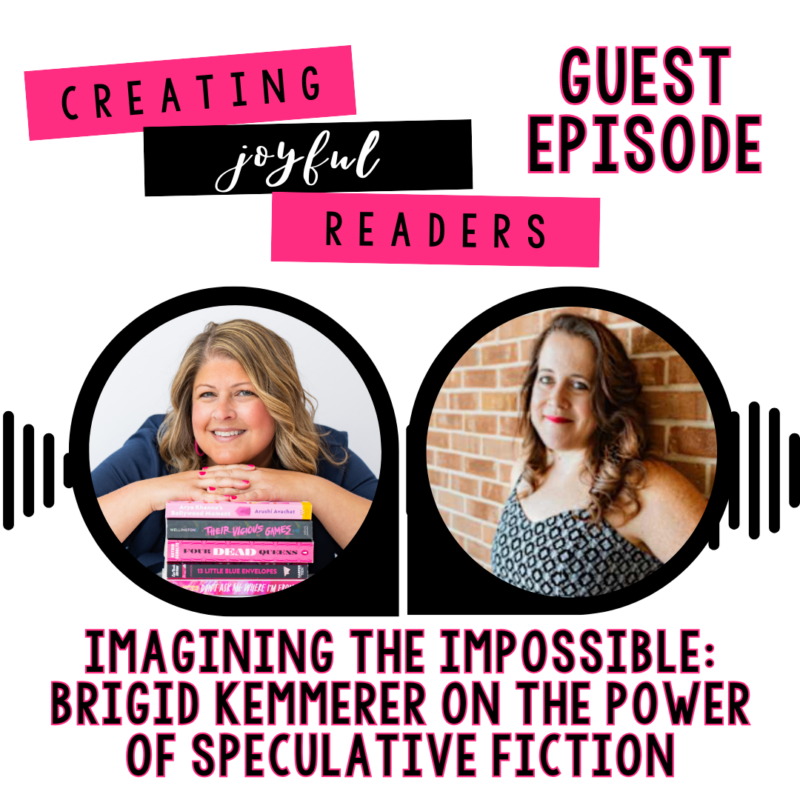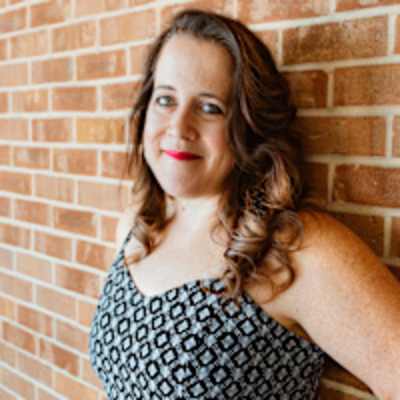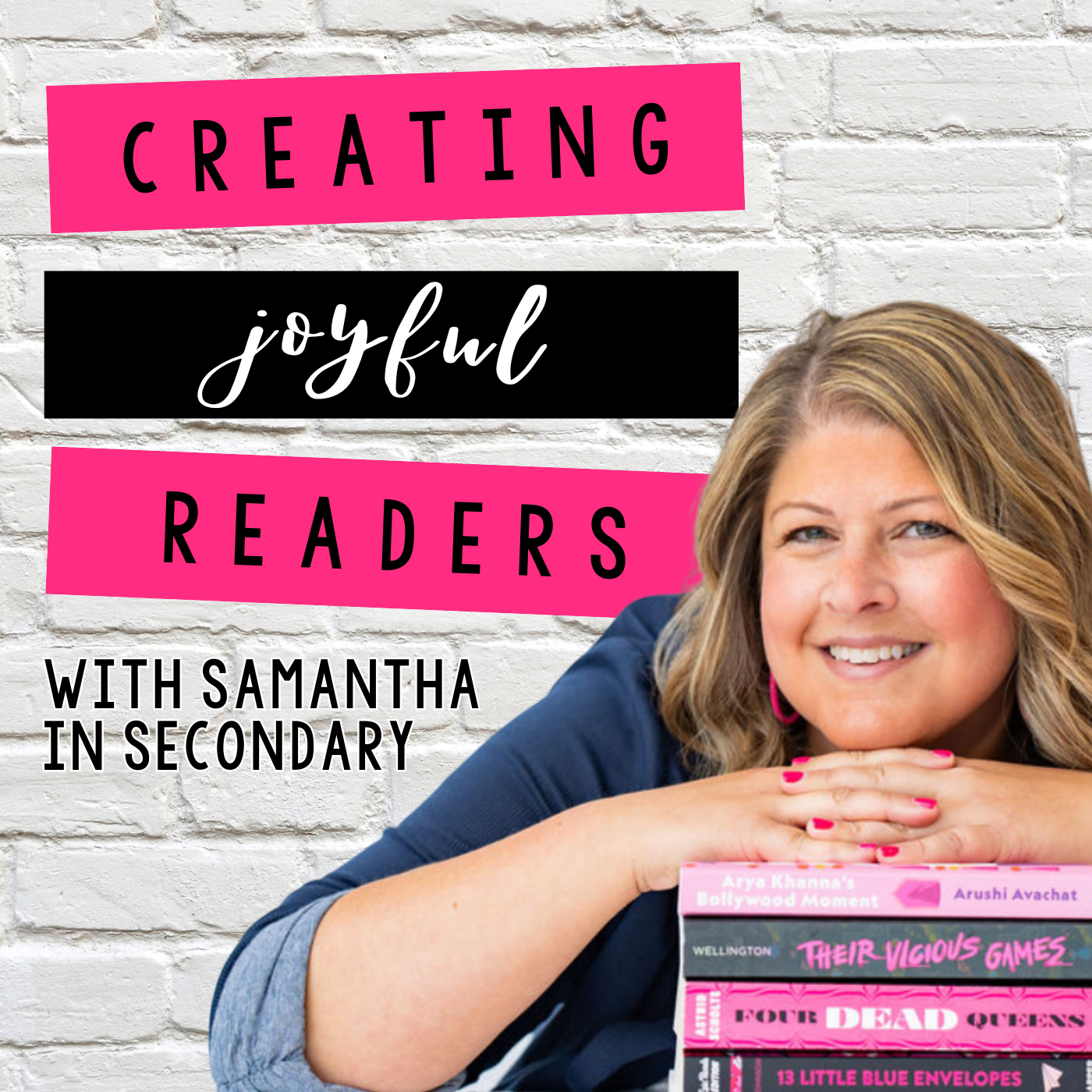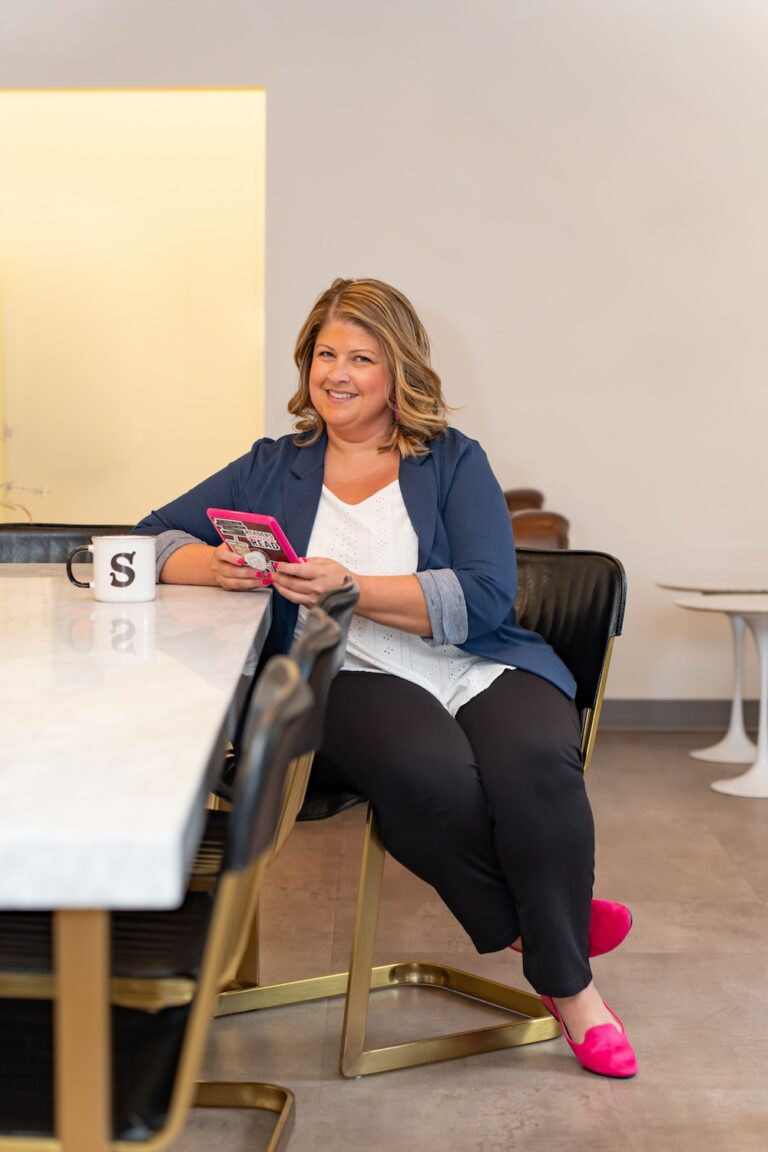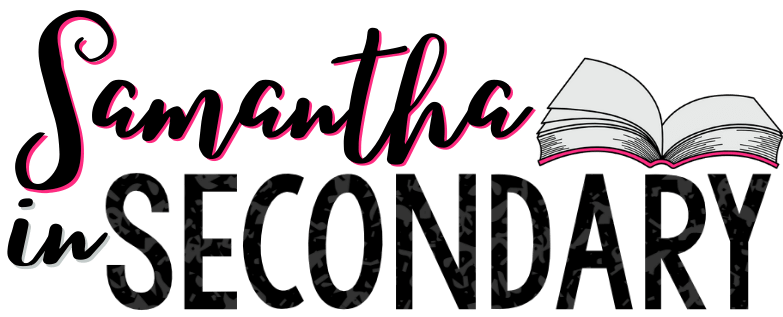[00:00:00] Samantha Welcome back to Creating Joyful Readers, the podcast that helps secondary ELA teachers and media specialists inspire a love of reading in every student. I’m your host, Samantha, and I am SO excited to introduce today’s guest conversation.
Brigid Kemmerer is a New York Times bestselling author known for her captivating fantasy and contemporary novels, including A Curse So Dark and Lonely, Defy the Night, and Letters to the Lost. Her books have a way of pulling in teens and adults alike. In today’s episode, we’ll talk about Brigid’s own journey to becoming a joyful reader and what makes the speculative fiction genre so fascinating for audiences of all ages. Plus, she’ll share insights into her own writing process and teasers about upcoming projects.
So, whether you’re a teacher, librarian, or just a fan of incredible YA, you won’t want to miss this conversation.
[00:01:26] Samantha: All right. Hello Bridget. Welcome to Creating Joyful Readers.
[00:01:30] Brigid: Hi. Thank you so much for having me. It’s really exciting to be here.
[00:01:33] Samantha: So happy to have you. We have been going through all of the different genres and I’ve had the privilege of having a bunch of different authors on to talk about their respective genres. And so today I have you on to talk about speculative with me. Um, so let’s start off by telling me about your own reading journey.
[00:01:49] How did you become a reader and therefore then a writer?
[00:01:53] Brigid: So for me, when I was growing up, we moved a lot when I was a child, we probably moved every year. And for me, books were my constant friend. I just, I loved stories, I loved storytelling. I could never get enough, you know, when it came to books, when it came to, you know, I remember everything. You know, the Babysitters Club, the Sweet Valley twins that I’m totally showing my age here.
[00:02:18] And I just, I just loved them. And I remember this one time my dad had taken, me and my brother to the mall and we had of course gone to the bookstore and I had gotten, you know, several new books and I finished one of them by the time we got home. And my dad was actually a little upset, you know, he said, I just bought that book.
[00:02:39] Samantha: He is like, use the library.
[00:02:42] Brigid: And I remember he said, if you’re gonna keep, you know, reading books this quickly, you’re gonna have to write them yourself. And, you know, I was like, all right, challenge accepted. Right? And that, that’s kind of where it started. You know, I, I’ve always just loved the art of storytelling and I love having the opportunity to do it now as my career.
[00:03:01] Samantha: Do you remember about how old you were when your dad said that to you?
[00:03:05] Brigid: You know, I had to have been around third or fourth grade.
[00:03:09] Samantha: And did you start, did you start writing some stories when you were that young, or when did you start?
[00:03:13] Brigid: I, I definitely did. I have some of my really early stuff, um, was probably fifth or sixth grade.
[00:03:19] Samantha: I love that.
[00:03:19] Brigid: you know, back long hand, um, you know, all written in cursive on notebook paper, you know, and even by the time I got to high school, um, one of my favorite stories is I used to get in trouble in math class because I would, you know, other kids might be, you know, I don’t know, sneaking magazines or whatever.
[00:03:36] And I was just writing stories in my math notebook.
[00:03:38] I was such a rebel.
[00:03:40] Samantha: I, relate to that so much. My best friend and I used to pass a notebook back and forth all the time, and we would write
[00:03:47] Brigid: I love that.
[00:03:47] Samantha: back and forth to each other and, but we were writing stories, so we would, I would write a little part and then she would write a little part.
[00:03:51] And we still, to this day, like hobby write just for fun, you know, and it’s been, uh, an awesome, you know, part of my life. So I love hearing about how people get started and also the power of the adults in your life to say those things to you that really do change the trajectory of your life, whether it’s a parent or a teacher or an educator.
[00:04:11] I just love that concept that somebody could say something to you that really inspires you to do something, you know, maybe that you didn’t think of before.
[00:04:19] Brigid: Absolutely.
[00:04:20] Samantha: So what drew you specifically to the speculative fiction genre? I think that you have books that are not speculative as well, correct?
[00:04:28] Brigid: I do, I have, uh, several contemporary young adult novels that are just set in the real world. Normal kids, you know, just doing normal teenagery type things. And then I have, you know, several that are more paranormal romance where it’s set in our world, but the characters have, you know, magical abilities.
[00:04:44] Um, but then it seems like the majority of my books that have been published are in just true fantasy, um, true speculative fiction, you know, second World, those kinds of things. And I just love it. I love it. There is something really powerful about being able to tell a story in a completely unfamiliar world
[00:05:04] where you can tackle some really hard hitting topics that affect people in today’s society. And I feel like, especially for teenagers, it makes those kinds of things really accessible. You know, I have in one of my books, um, forging Silver into Stars, completely second world fantasy. You know, we’ve got, warring kingdoms and, traitors against the throne and things like that.
[00:05:27] But then, you know, we also have a character who’s dealing with a history of, , trauma and abuse. You know, there’s another character who’s dealing with a father who’s essentially a gambling addict. , I have another character coping with grief over the loss of her mom. And you can, you can take these really real world concepts and
[00:05:45] plant them in a fantasy novel just as easily as you can in a contemporary novel. And I feel like because it’s that second world, sometimes, especially for younger readers, it makes it a little easier to, to deal with.
[00:05:58] Samantha: I love that explanation. You’re kind of, you’re dealing with these big topics, but you’re putting it in a way that’s digestible and a way that, also hooks young people because I feel like this genre is just super popular with young people. I feel like when I was looking at , some of the top books for last year and the year before, I mean Fantasy’s having a moment right now.
[00:06:18] There’re just so many that are topping the charts and I see all over the place because kids are really loving them. Um, what other authors in the genre inspire you?
[00:06:29] Brigid: Oh, so many. I am sitting here and I have a list of like 25 authors already rolling through my head. You know, I, I love, like Saba Tahir who wrote, um, an Ember In the Ashes. That’s one of my all time favorites. I love Amlie Howard. She has a new book coming out called The Starlight Air. Um, absolutely loved it.
[00:06:48] You know, I love Mary Pearson and Kiss of Deception and really her entire work. Man, so many, like, there’s just, there’s so much good fantasy out there.
[00:06:56] Samantha: Yes, absolutely. Like I said, I feel like the past couple of years, all of my favorite books have even been fantasy and I, I read a little bit of everything. Um, but fantasy is just really, um, putting out some really great stuff lately. Uh, why do you think young adults are so drawn to speculative fiction?
[00:07:12] I think particularly dystopia in fantasy because a lot of the big blockbuster hits we see over the years have been, you know, the Hunger Games, divergent, Harry Potter- they’ve been dystopia and fantasy, a twilight. I don’t see contemporary always getting the same. Uh, you know, love that that fantasy gets.
[00:07:34] What do you think makes teens love that?
[00:07:37] Brigid: I think being a teenager, especially being a teenager right now and speaking as the parent of a teenager, I think being a teen is scary. The real world is scary. I feel like being a teenager was scary when I was a kid growing up in the nineties, and I think now thanks to social media and access to the internet, teenagers are so much more aware of what’s going on in the world.
[00:07:58] And unfortunately, the way the news is presented, the way social media is presented, it makes the world almost seem even more scary than it genuinely is. You know, I’m frequently having to have conversations with my boys about you know, especially when they start to spin out and spiral and panic about something like, does this really affect you?
[00:08:17] Does this really affect, you know, our community? You know, are you safe? Because sometimes there are things that are just blown up, you know, for sensationalism that either aren’t true or aren’t as dire as they might be presented online. So I can absolutely see why fantasy is having a resurgence moment, both for young adults and for adults because it really is truly, genuinely escapist.
[00:08:41] Samantha: That was gonna be kind of my next question, or my next segue was, what about the genre leads to escapism or aids in escapism? What do you think it is?.
[00:08:52] Brigid: I mean, I really, I guess it probably goes right back to that first point that we were talking about, that, you know, you can still experience those real world emotions, but you don’t have to feel so centered in what’s going on in our world.
[00:09:06] Samantha: And isn’t it just cooler to be able to do it with, you know, creatures and magical powers and, you know, whatever else. It’s just so much better, you know, kind of real world feelings, but like with cooler abilities. So, you know, why wouldn’t you want that?
[00:09:21] How do you think that speculative fiction stories allow teens to explore themes like identity and power in society, in ways that resonate with them, especially today?
[00:09:31] Brigid: Wow. That’s a really good question.
[00:09:33] Samantha: I know, it’s a big one.
[00:09:35] Brigid: You know, it’s, it’s funny because sometimes I will see some commentary online about how, you know, YA fantasy is silly because you have teenagers, changing the world. And I’m like, but, but teenagers really do change the world. You know, if you’re gonna go out there and really do something big, it helps to have like a little bit of arrogance, right?Um,and all teenagers have it and it helps to be a little bit fearless and being a teenager, that also kind of comes into play. And I think that stories, especially, you know, YA literature showing teenagers going out and kicking ass, if I’m allowed to say that on your podcast.
[00:10:13] Samantha: Yes, You can say it. Go.
[00:10:15] Brigid: You know, if it shows teenagers doing that, I think it’s really empowering for both young women and for young men.
[00:10:22] And you really just have to, I don’t know, look out into society and see teenagers truly, genuinely changing the world right now. You know, there’s teenagers like Greta Thunberg, I feel like every single school shooting now has a teenager who comes out of it in some form of activism.
[00:10:38] It’s really phenomenal to see kids doing big things. Everybody knows Hamilton, right? The Broadway musical Hamilton really was 19 when he was doing all of these things. So, you know, I just, I find it fascinating when people are like, teenagers can’t do that.
[00:10:53] I’m like, sure they can.
[00:10:55] Samantha: And they do. Absolutely. And they do. And I was actually going to say in some of your novels, I feel like the theme of power just comes up over and over, , in a lot of them. And so to connect that to today where teens might feel like they don’t have any kind of showing them ways that, you know, other teens grapple with that, or can find their voice and find their power, within their scope of being.
[00:11:20] I just love that speculative fiction does that and kind of gives them that lens to be able to, look at the world maybe in a different way, maybe in a way that they hadn’t thought about before.
[00:11:30] Brigid: Absolutely.
[00:11:31] Samantha: You actually segued right into my next question, which we were gonna talk about young protagonists and how they kind of shape the identity.
[00:11:39] Do you think that they shape the identity? Do you think teens are reading these books and kind of taking things from them and, you know, maybe helping them shape their identity a little bit?
[00:11:48] Brigid: I do, I do. You know, maybe not directly, but I definitely think that books help build empathy. I think it’s so important for characters or for readers to be able to see themselves in a character and either see a character achieve something that previously seemed insurmountable. Um, being able to get through something that maybe the teenager themselves didn’t feel like they could get through in their own life.
[00:12:12] Um, based on some of the messages that I receive from readers, especially teen readers, I know that books just truly, genuinely do have an impact on what people feel like they can do. I thought of a story, but I don’t wanna ever wanna, divulge anything that a reader has sent to me in confidence, but just suffice to say that I know that books really do have a profound impact on what people do with their lives.
[00:12:36] Samantha: And I love that teens feel comfortable reaching out to you and telling you whatever it is about, how they’ve connected with your material. That must be a really cool feeling.
[00:12:45] Brigid: Oh, it’s amazing. And it’s really powerful to me to, you know, sit here in my basement and write these books and to get a message from a teenager, you know, anywhere in the world and hear about how my book has affected them to hear how a story has affected them. Um, I have had people write to me about all kinds of things from, you know, coming out to their parents about, you know, just
[00:13:07] very dark thoughts that they’ve had and how they’ve moved past them, how they’ve dealt with conflict with their friends. I think there’s something really magical about books, you know, that, that, that can happen.
[00:13:17] Samantha: Absolutely. They’re kind of the bridge between us. Let’s talk about your process a little bit, because speculative fiction is so big and it really encompasses so many different things. It can be, you know, dystopia or fantasy or science fiction.
[00:13:30] How do you decide which speculative elements that you wanna incorporate in the story? And what role does world building play in that process?
[00:13:39] Brigid: So for me, I’m a very loose world builder. You know, I tend to throw things on the page as they occur to me. If, you know, if I think it sounds cool, I’m like, all right, sure. Um, sometimes it works and I build from there and I build around it after I get my first draft written, I’ll go back and I’ll kind of flesh things out a little bit more.
[00:13:58] Sometimes things don’t work. Probably the biggest one I can think of was I had a plot line and a story, you know, that dealt with a lot of like treason, um, like royal treason. And I had given one character, the magical ability to know whether or not other people were lying to him. And as I kept writing the book, if your character can basically, you know, tell if you’re lying, like it wrecks your whole treason plot.
[00:14:22] So I had to go back and kind of unwind that and take that ability away.
[00:14:25] Samantha: That’s funny. It’s kind of like, well, how do you build around that? We’re just gonna have to get rid of that at that point. Yeah. I love how fantasy can be so, kind of vague in that sometimes you just don’t even know what year it is. Um, I feel like, like what, what year? ’cause I, I, I’m not sure, maybe it was defy the night that we had some like kind of older technology and some older things, but some things that felt a little bit more, recent. So I love that fantasy just allows you to play with your world and be able to do, , whatever it is that you see in your head with that. ,Speculative fiction often involves themes of rebellion, justice, and hope.
[00:15:03] Why do you think these themes resonate so strongly with young adults?
[00:15:07] Brigid: I think that rebellion and hope could probably be the whole sign of being a teenager.
[00:15:13] Samantha: Yes.
[00:15:14] Brigid: You know, it’s all about rebellion and hope, you know, you wanna fight against the structures that are in place and you also hope that you’re gonna come out the other end all right. Right? And I think that’s why, you know, teenagers relate to this kind of fiction. And I honestly think that’s why in this day and age, so many just humans in general relate to this kind of fiction. I think there’s a real reason why young adult literature, especially speculative fiction and fantasy, are so popular right now.
[00:15:42] And I think it is these themes of rebellion and hope
[00:15:44] Samantha: yeah, same with, I mean a lot of the adult fantasy and, you know, speculative, it’s a lot of the same thing. I think people look for it as kind of a beacon, to escape the everyday life and kind of see that things could get better. Do you meet with students a lot? Are you able to do school visits?
[00:16:02] Brigid: I do, yes. I haven’t done as many in the last couple years, just my schedule’s been too busy. But I love, I’ve done a lot of virtual school visits, uh, library visits, uh, and I, I just love it. I love talking to teenagers. It’s amazing.
[00:16:14] Samantha: Are you able to tell us a little bit about what you’re working on right now?
[00:16:17] Brigid: Sure. I have two books that I’m working on right now. I Am in the middle of the first draft of the final book in the Forging Silver into Stars series. Um, book two comes out actually in a couple weeks. I’m really excited about it. Um, and I’m currently writing book three for that series, and I just finished up edits for my very first adult fantasy novel, Warrior Princess Assassin, and that one comes out in August of this year.
[00:16:43] Samantha: I saw that. That looks so exciting. Are you able to tell us a little bit about what that’s about?
[00:16:47] Brigid: Sure. I’m super excited about it. That one is totally second world fantasy, very high fantasy. Definitely adult, not written for children. Um, I mean, you know, anybody can read it if they want, but if you are under 18, please consider whether or not you’re the right age for it. Uh, definitely written for adults. And it’s a book about
[00:17:06] a princess who is secretly best friends with an assassin who sneaks into her room, you know, from time to time. And they’re best friends. They’ve been best friends since childhood, until one day she learns that she has been betrothed to this warrior king, um, to seal an alliance between her kingdom and the neighboring kingdom.
[00:17:27] She does not want to marry this man. Everything she’s ever heard about him is that he’s terrible. He’s this horrible villainous man who causes a lot of damage. she has to agree to save her kingdom. But then the night before she is due to get married, her best friend, the assassin arrives in her chambers and tells her that he has received orders to kill both her and the man
[00:17:48] she is due to marry, and asks her what does she want to do about it. And I had so much fun writing it. I love these three characters. It’s just such a fun adventure.
[00:17:58] Samantha: Is this going to be a standalone or will you have more?
[00:18:01] Brigid: Uh, there will definitely be more.
[00:18:03] Samantha: Do you have any favorite tropes that you like to write?
[00:18:05] Brigid: I love Enemies to lovers- one of my absolute favorites, I love like forced proximity, like there was only one bed. Those are probably my two favorites.
[00:18:14] Samantha: Oh, that’s awesome. So can you tell, people where they can find you if they’re interested in your books or, uh, maybe chatting with you about a school visit?
[00:18:21] Brigid: Absolutely. Most information is right on my website, just www.brigidkemmerer.com and on all the major social media platforms. I am also just at Brigid Kemmerer.
[00:18:33] Samantha: Thank you. I will also add all of those links into the show notes so if you are driving or doing laundry or any of those things, you can go to my website and find those show notes as well. We have a lightning round and this has been so much fun to do with all of my guests. I’ve gotten all kinds of
[00:18:47] fun answers and lots of book recommendations, which has been a lot of fun. So question one is, what is the book that made you a joyful reader?
[00:18:55] Brigid: I would have to say, Remember Me by Christopher Pike. I read it when I was 12 and I just, it was the first YA novel I had ever read and after reading nothing but Babysitters Club and you know, like little tween novels suddenly reading this book about teenagers like
[00:19:12] doing bad things. I mean, not that bad, I was like, wait, books can be like this. And yes, I love it.
[00:19:19] Samantha: You would be surprised how often Babysitter’s Club comes up on this show. I’ve said the word babysitter’s club probably more often than I’ve said in my like, normal waking life on this show, I think it was really formative for so many people. Um, not only just in this question, but also I talked to somebody about tropes and it just kept coming up and kept coming up.
[00:19:41] So it’s kind of a lot of people’s first introduction to, a lot of those things, which is really cool. Number two is what is the last five star book you read?
[00:19:50] Brigid: Ooh. I would probably have to say, uh, you know, honestly, probably the Starlight Air by Amalie Howard. It just came out this week and I read it and I absolutely loved it. It was phenomenal. That is an adult fantasy.
[00:20:03] Samantha: Can you give us a little blurb about what that’s about?
[00:20:06] Brigid: Oh man. Now I’m on the spot.
[00:20:08] Samantha: Oh, sorry. If you can, it’s okay.
[00:20:12] Brigid: Yeah, no, it’s full of magic. And, um, there are two potential love interests. So it’s not really a love triangle, and I just, I thought it was phenomenal. Amalie is such a great writer and her characters are just so funny. I laughed out loud on like the second page. Um, she has a real gift
[00:20:28] Samantha: That’s awesome. And the last one is, are you a physical book, e-reader, or audiobook listener?
[00:20:33] Brigid: physical book all the way. I can’t do audio. I’ve tried so many times and my attention just starts to drift. And I have a Kindle and I love it, but I really prefer the physical books because I put everything else down and I just have the book in front of me, and that’s all I can do.
[00:20:48] Samantha: Well, thank you so much for sharing your time with us today.
[00:20:51] Brigid: Thank you for having me. This has been wonderful.
[00:20:54] Samantha: Awesome. And then everyone go pick up, uh, the book. It’s coming out in a couple of weeks. Tell ’em what’s it called again?
[00:20:59] Brigid: Uh, carving shadows into gold.
[00:21:01] Samantha: Thank you so much.
[00:21:03] Brigid: Thank you.
[00:21:04] .Samantha What an incredible conversation! A huge thank you to Brigid Kemmerer for joining me today and sharing her insights on storytelling, speculative fiction, and the magic of books that keep readers turning the pages. I love how she described the power of fantasy to help young readers see themselves, escape into new worlds, and find joy in reading.
If you enjoyed today’s episode, be sure to check out Brigid’s books. They’re perfect for classroom libraries, book club picks, or just adding to your own TBR. And if this conversation sparked ideas for your own teaching or library space, I’d love to hear from you! Connect with me on Instagram @samanthainsecondary and let’s keep the discussion going.
Until next time, happy reading!

